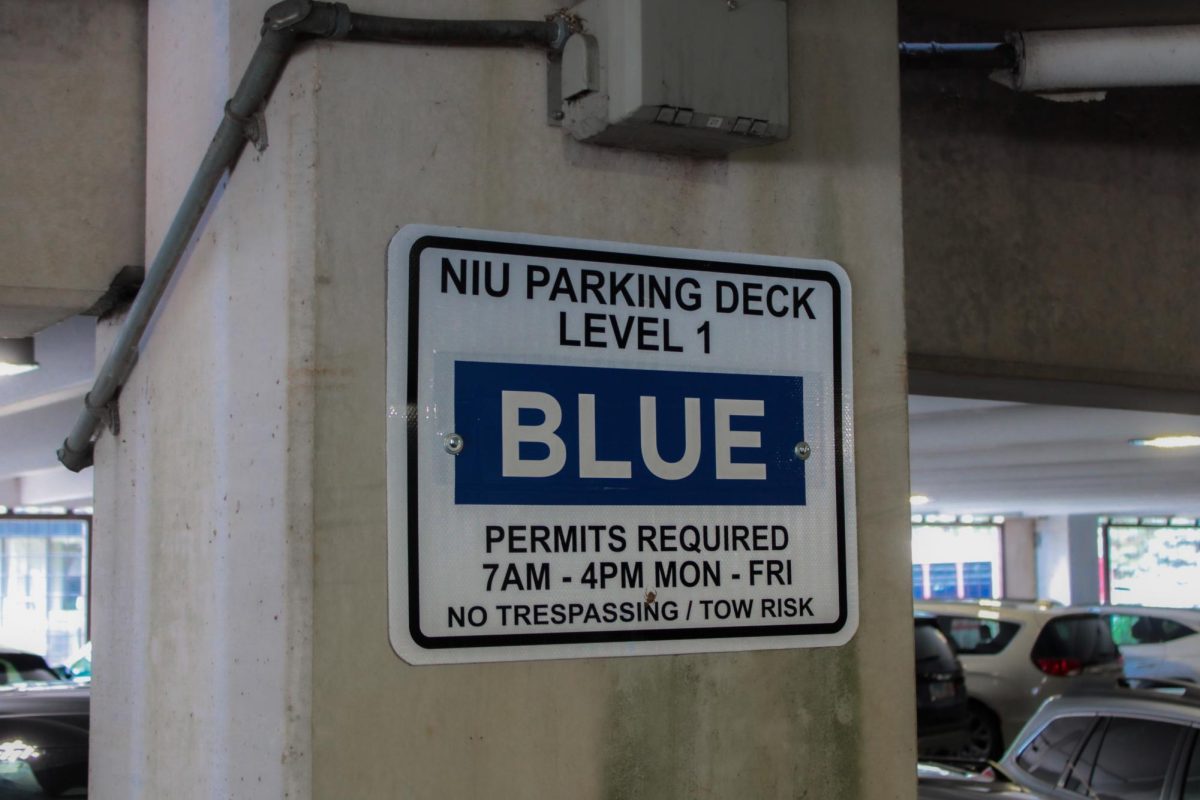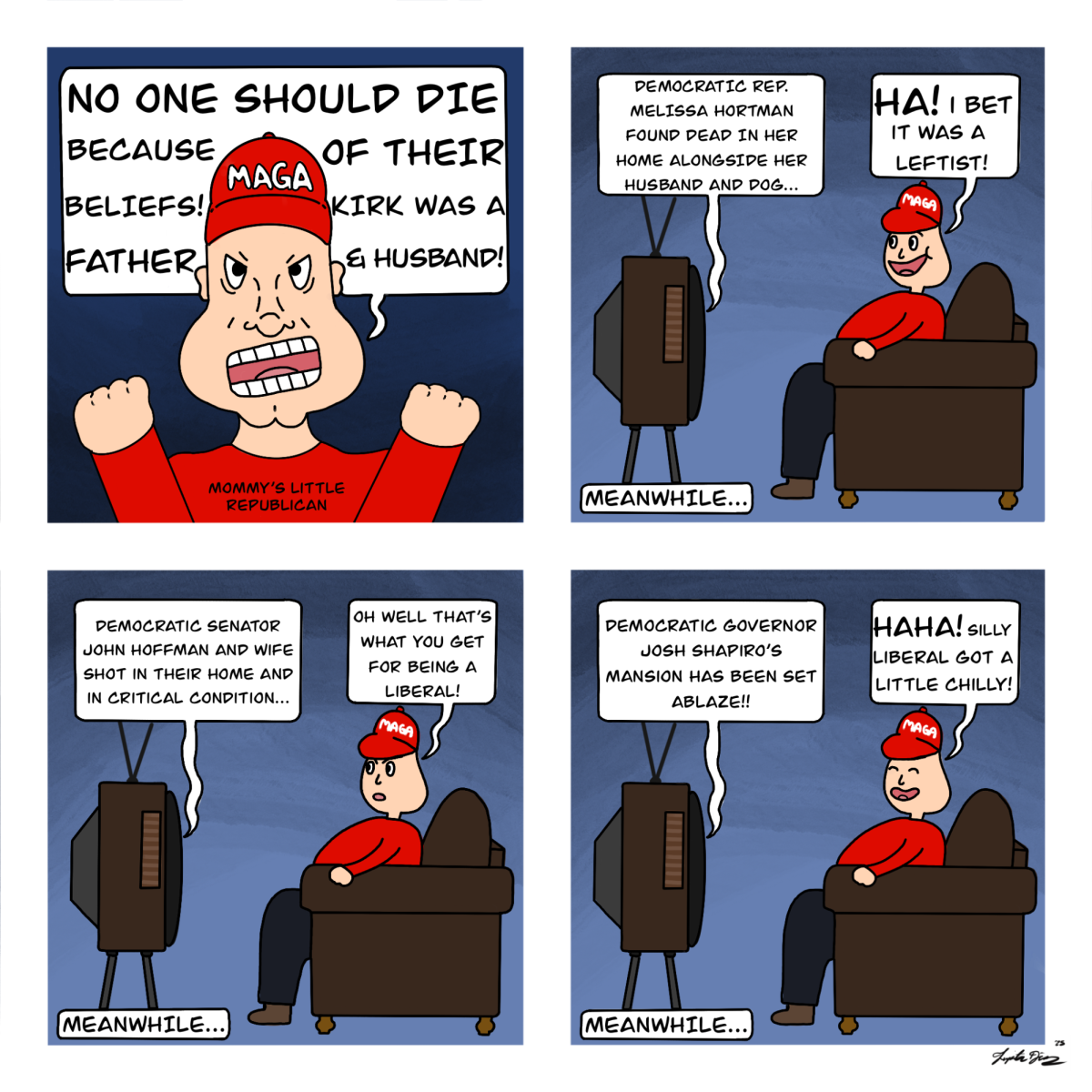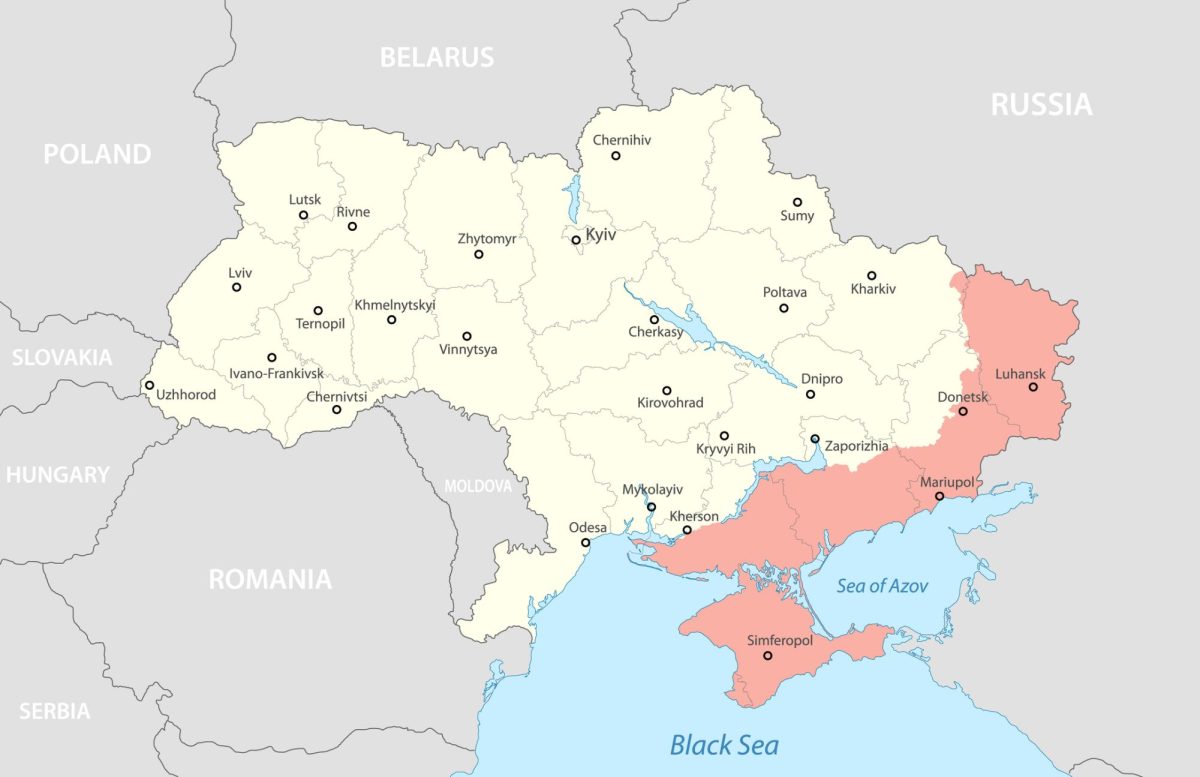Editor’s note: This column contains triggering content relating to war.
Israel has begun what it considers its final crusade, but the nation must act with more humanity as it navigates – and furthers – various conflicts.
Israeli Prime Minister Benjamin Netanyahu has repeatedly said the Israeli government hopes to exterminate both Hamas and Hezbollah, and they also hope to give a strong response to the Iranian attacks of Oct. 1. But this conflict not only puts the Palestinian people in the crossfire, now there is also the risk of collateral casualties among Israeli, Lebanese, Iranian, Iraqi, Syrian and Yemeni civilians.
In one of the most impressive moves of military intelligence, Israel intercepted and manipulated Hezbollah communications devices. The Israeli military began to control Hezbollah – one of its most dangerous enemies – within a week due to these attacks and the proximity of Lebanon to Israel
Ches Thurber, an associate professor of political science at NIU, explains the specific reasons Israel felt a need to enter a conflict with Hezbollah.
“Early on in the conflict (between Israel and Hamas) Hezbollah has rallied to Hamas’ side by lobbying missiles from Lebanon into Northern Israel,” Thurber said. “Israel has had, for the majority of the year, kind of responded in a relatively small scale, but as the missiles from Hezbollah kind of escalated a month ago, (Oct. 1) they decided to take much more aggressive action.”
The cold war that Iran and Israel have been maintaining for several years has been considerably escalated by the surgical attacks, plans to evade enemy dispatchers that use few materials but require significant planning and intelligence, that Israel has carried out on Iranian soil against the high-ranking commanders of both terrorist groups.
With many of the recent attacks from Israel, we have also seen the disdain with which Israel handles opposing casualties.
We saw the shocking images of a victim burning alive without rescue. We saw videos that seemed taken from a grotesque fiction film – missiles that flew hundreds of miles undetected crashing and killing one.
The nation does not seem to share that same regard for human life of other nations, no matter if they are civilians or combatants.
Israel has not hesitated to step on who it must to achieve its goal of eliminating the terrorist groups that surround Israeli territory as well as weaken Iran, a mastermind behind some terrorist groups. And even when this goal is vital to Israeli integrity, the country should look for a way to solve this conflict forever, without having to kill or forcibly displace every resident of the Gaza Strip.
Simply because the existence of Hamas and Hezbollah is to facilitate the destruction of Israel doesn’t mean Israel should annihilate every Palestinian or Arab within their limits. But, Israel cannot just sit and wait for every attack that Hamas or Hezbollah would launch.
“Of course, Hezbollah is significantly supported by Iran. That was one of the ways which Iran views, it viewed itself as protected against Israel, was that if Israel did anything to Iran like bomb its nuclear sites, Iran could retaliate via Hezbollah,” Thurber said. “And so with Hezbollah gone, significantly incapacitated, Iran has lost this potential to retaliate, and consequently, deterrent capability against Israel.”
Israel claims it intends to accomplish its goals at no cost to human life in other countries, including their allies. But to attack the land border of Lebanon – and thus Hezbollah border with Israel – troops and tanks had to pass through a zone of de-escalation controlled by a United Nations peacekeeping mission, which triggered several skirmishes between the U.N. and Israel.
These developments, together with all the controversy Israel has raised through its armed intervention in Gaza and its rocket-bombing tactics against any densely populated area of the region, have left the public image of the Netanyahu regime seriously damaged.
It is undeniable that Israel had casus belli, or a justifiable reason to invoke war, after the attacks of Oct. 7, 2023. But the policy of victory at any cost can come to be, ironically, very expensive: not only in terms of the international community but also in terms of Israel’s own identity.
The line between what terrorist groups do and what Israel does is becoming increasingly blurred.
It may be that being at war for so long has given Israel a wealth of experience in developing weapons and technologies. And time has allowed Israel to demonstrate its superiority to the point of practically mocking its enemy.
But this arrogance and carelessness in facing a war could cost Israel dearly, which, if it is not careful, will remove the biggest barrier of control between the Middle East and a new ISIS – multiple groups in the Middle East that are working to promote an Islamic caliphate, or a religiously and politically united form of government.
Israel is losing limits and precautions; it does not seem to care who it passes over. And, if the nation continues like this, it will become just like those Israel swore to destroy.




















